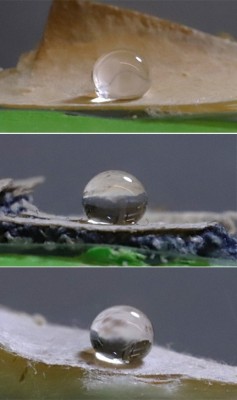Researchers have discovered a novel method to create waterproof materials using an edible fungus, potentially offering a sustainable alternative to single-use plastics. In a study published in the journal Langmuir by the American Chemical Society (ACS), the team demonstrated that combining this fungus with wood fibers results in a protective layer that effectively blocks water, oil, and grease absorption.
The challenge of finding eco-friendly substitutes for common materials has gained increasing attention due to the environmental impact of plastic waste. Traditional coatings for paper cups and wraps often rely on synthetic substances that persist in the environment. By using an edible fungus, this new approach aims to reduce reliance on such materials while maintaining functionality.
Janice Smith, one of the leading researchers, explained that the coating produced from the fungus not only provides excellent waterproofing properties but is also biodegradable. This dual functionality could significantly decrease the volume of plastic waste generated by food packaging and disposable items.
The research highlights the importance of innovation in material science. By harnessing the natural properties of edible fungi, the team is paving the way for sustainable practices in industries ranging from food service to textile production. The biodegradable nature of the coating could lead to a reduction in landfill contributions, ultimately benefiting the environment.
In practical applications, the new fungus-based coating can be integrated into existing manufacturing processes. This adaptability is crucial for widespread adoption, as industries seek to transition away from environmentally harmful practices without sacrificing product performance. Researchers anticipate that this discovery could be commercially viable within the next few years.
As environmental regulations tighten globally, companies are under increasing pressure to find sustainable solutions. The development of this fungus-based waterproofing technology aligns with these demands, offering an innovative way to meet market needs while addressing ecological concerns.
The findings of this research present a promising step forward, demonstrating that nature can inspire solutions to some of the most pressing challenges in material science. With ongoing studies, the potential to scale this technology may soon transform how industries approach product packaging and design.
Overall, the use of edible fungus as a waterproofing agent could play a significant role in reducing plastic waste and fostering a more sustainable future. As researchers continue to explore this avenue, the hope is that such innovations will lead to broader changes in consumer behavior and industry standards.







